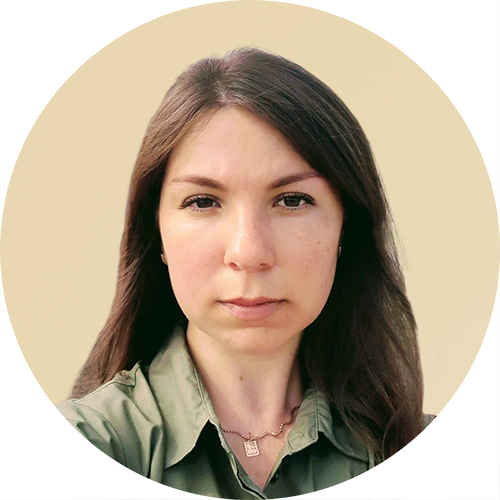I think that everyone has heard that “Comfort is the enemy of growth”, especially when it comes to your professional life. I have come to realize how true that is from my own experience. My name is Olha, and this is the story of transitioning from a QA position, where I was comfortable, to the uncharted territory of project management.
How it All Started
My QA journey started from a simple curiosity about IT. I had a couple of friends who worked as QA engineers. So, I contacted them to ask questions about their work and find out where to start in case I would like to. They gave me a solid list of resources and a couple of tips. It took me a while to study things, but the more I studied, the more I got the motivation and confidence to become a QA tester.
A couple of years after I started my QA career, I noticed that many of my friends and acquaintances approached me for career guidance, expressing their interest in QA and IT. Later, I was proud to see that some of them achieved considerable success in the QA field.
As a QA tester, I worked mainly with CMS systems, and when I reflect on my experience, I realize that I’ve gained invaluable knowledge about the industry. It helped me to learn the ropes of the field and gain a general understanding of what the project is, its main stages, and the importance and price of the project’s quality.
Recognizing the Desire to Сhange
Working for a long time on the same project or with the same tech stack becomes safe and understandable for QA specialists. No challenges ahead, only routine checkups of the slightly modified functionality. The onboarding and knowledge-sharing with a newcomer who one day decided to join your team becomes the only thrilling experience.
While it is useful to develop specialized knowledge and narrow technical skills, it is also pretty limiting. Since I wasn’t deepening my technical knowledge and felt stuck in a rut, I decided to change my perspective.
From Stuck to a Fresh Start
It had been many months since I decided to switch to a completely new position and found a new job. At that time, there were two things that drove me and helped me to approach the desired destination. The first one was consistency in learning. I began by identifying areas in which I needed more knowledge and came up with my own study plan. This plan became my guide before I even started to look into project management vacancies.
The second one was the examples of people around me. Many of my colleagues started PM positions from zero, without having any specific skills or accomplishing educational courses. Despite that, they were really professional, and I was inspired by their examples. At the same time, I saw other managers that might have been not so professional, and their leadership styles were anti-examples for me. Nevertheless, they helped me to gain a clear understanding of how you shouldn’t lead or communicate with people around you.
Starting my first PM position was a bit challenging at the very beginning. It was a matter of expectations vs. reality as I didn’t expect to fulfill some of the responsibilities that I had, such as pre-sale process participation or HR-related things. However, I soon realized that as a manager, you have an influence on many things and processes, and your responsibilities are much wider than just project coordination. When you accept these different angles, you become even more engaged in related areas that straightforwardly affect your team’s success, and you stop doubting those additional responsibilities.
Now, I am a part of the DreamProIT team. Working here is the perfect combination of a fulfilling and at the same time challenging experience. New opportunities require new approaches, which make you gather all your previous experience and keep your mind open to new things by continuously learning and improving.
Leveraging QA Experience in Project Management
As I look back at QA times, I realize that even though it didn’t become my lifelong occupation and took some effort to make a change, it still gave me takeaways that became applicable not only in a career but became life-guiding principles.
Be curious and open to learning new things
Since the tech world is fast-paced and dynamic, you will never know what tech stack you will be working with next. This ever-evolving nature of the industry keeps you on your toes and encourages adopting a mindset of continuous learning.
When I transitioned to project management, I realized the importance of having a broad knowledge base across different domains instead of just focusing on specific tech areas. While it’s essential to understand the specifics and key principles of technology to be a skilled specialist, it’s often best to rely on the expertise and experience of your tech team to determine the optimal solution in most situations.
Don’t be afraid to put your ideas into action
If you have a hypothesis or idea, then start testing them. Find ways of trying things out, and then reflect and adjust. Consequently, you will either fail or thrive. However, the risks and cost of your failure are lower at the beginning of the experiment. In the worst-case scenario, it’ll become your learning experience, in the best-case scenario, it can bring you encouraging results and a clear path forward.
Building effective relationships is the key
Last but not least, I found that establishing a relationship with people is sometimes easier than with designed software. In both cases, the process requires effort, understanding, and ongoing maintenance. While it may present challenges, the rewards of establishing meaningful connections far outweigh the difficulties. But again, do not forget to start with testing!
